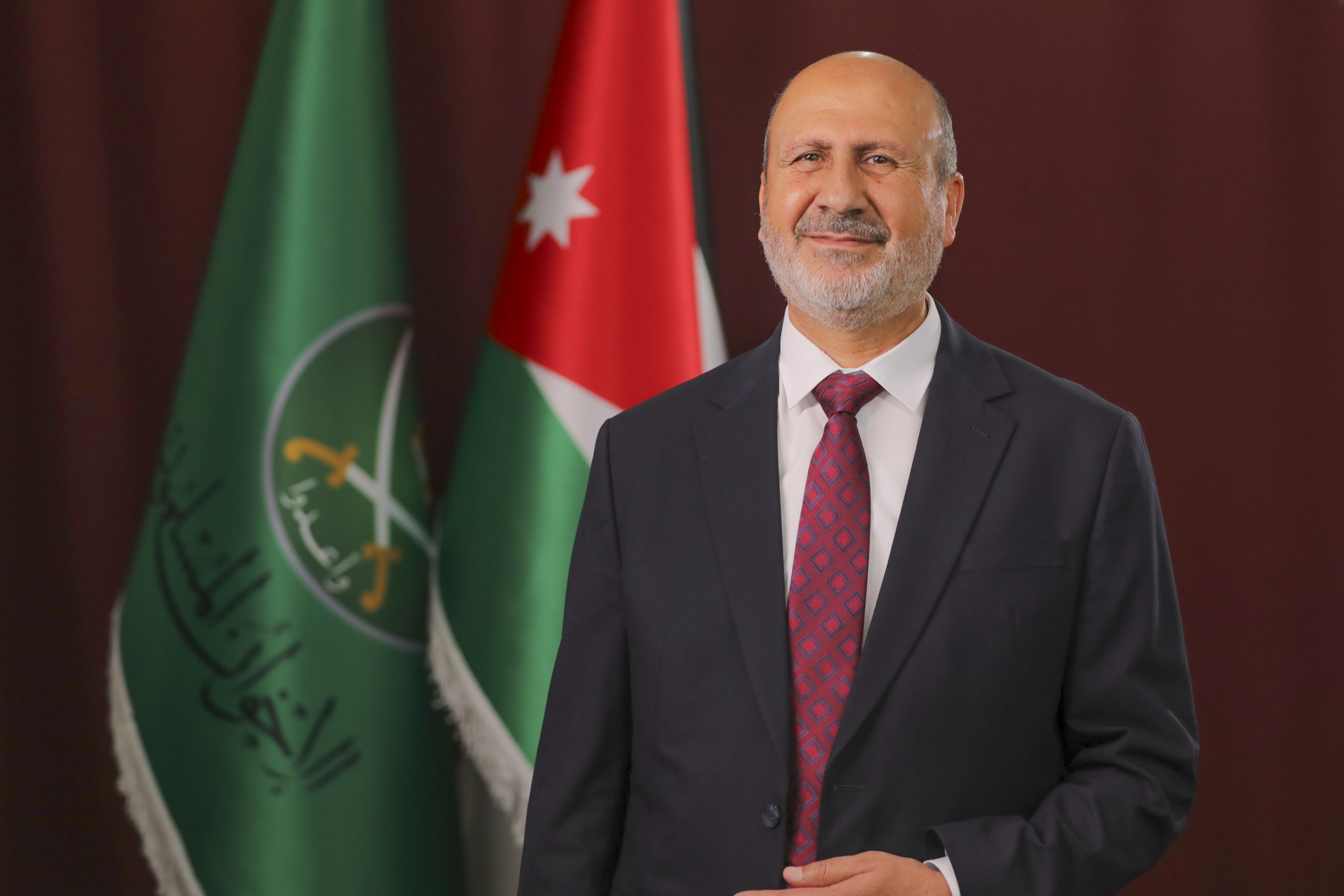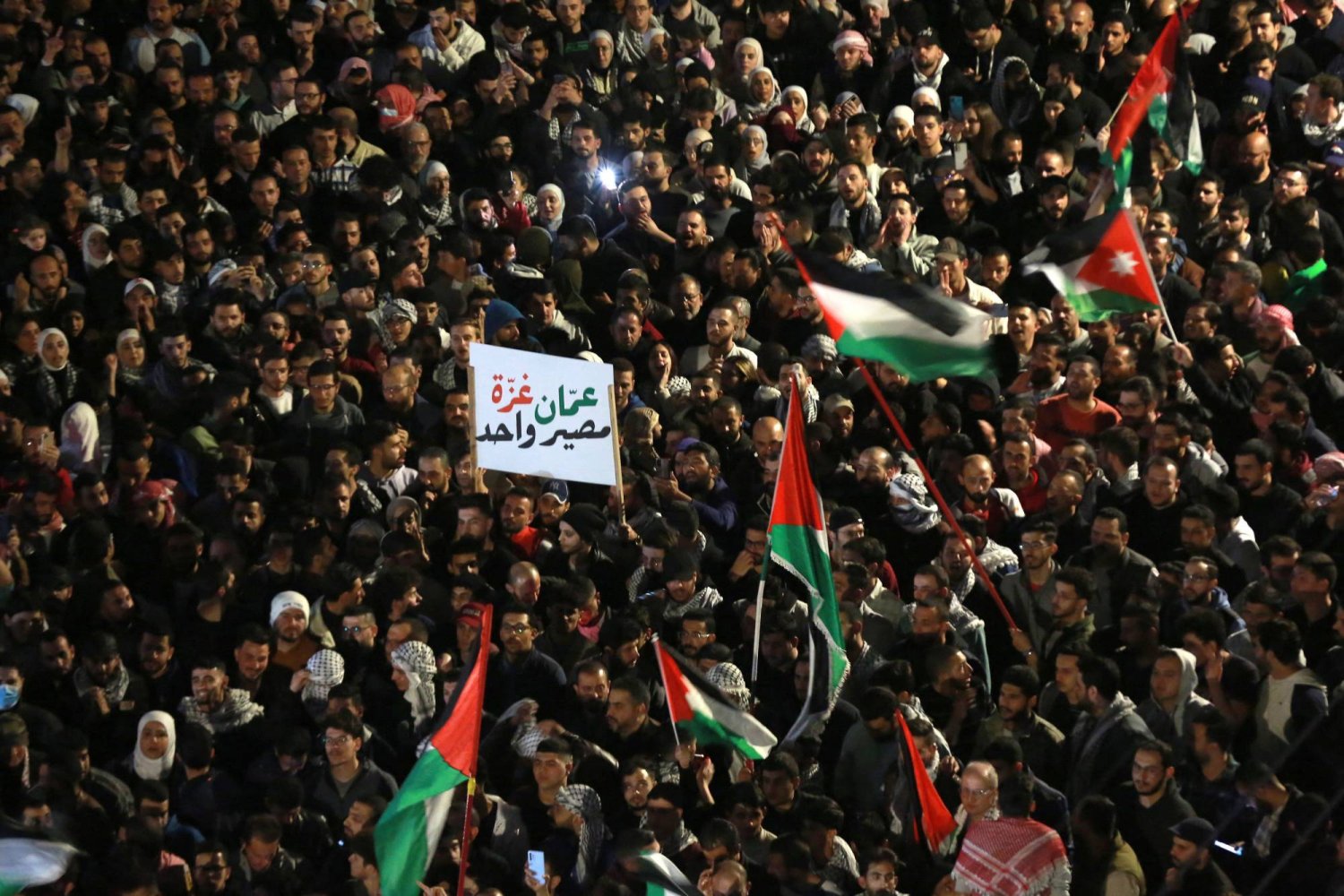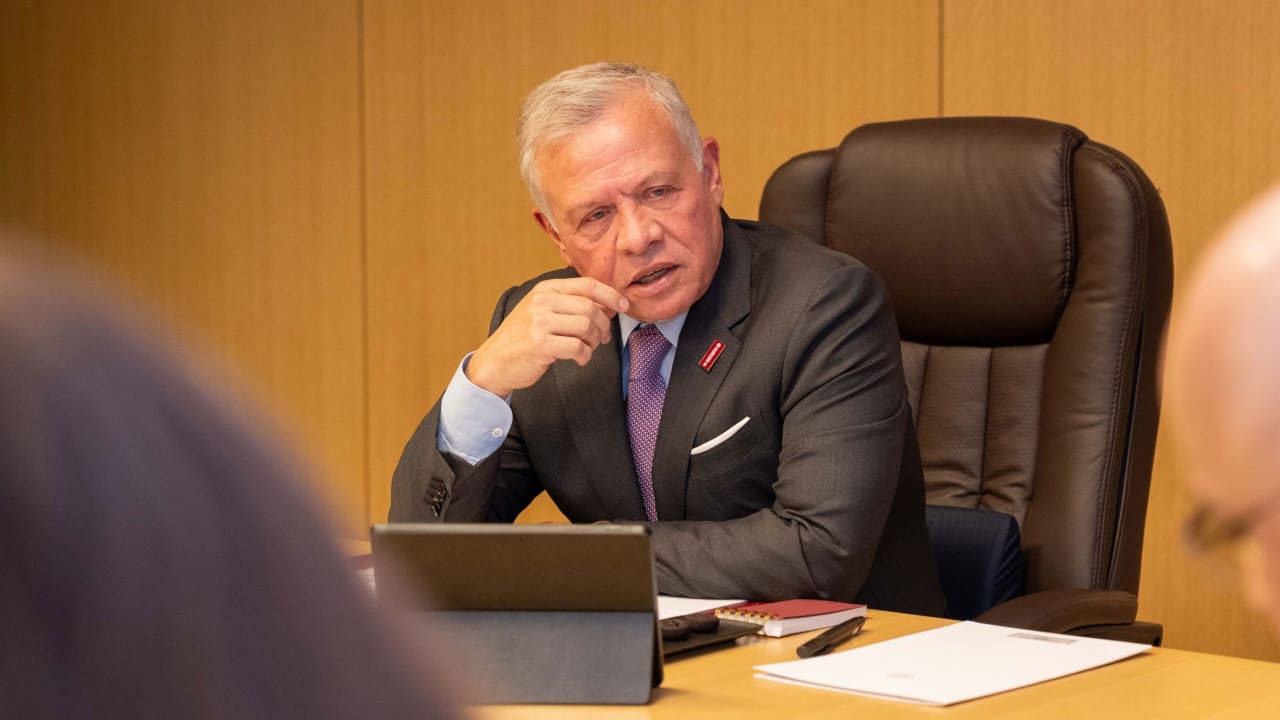Amid War on Gaza: Who Will Win Jordan's Parliamentary Elections?

Holding elections amid the Gaza genocide is a challenge in itself.
On September 10, 2024, Jordanians will vote to elect a new House of Representatives, which many view as merely a “decorative” body largely controlled by King Abdullah II.
These elections are of exceptional significance as they are the first held since the constitutional amendments of 2022, the introduction of new electoral laws, and the establishment of new political parties.
They are also taking place amid significant challenges due to the Israeli aggression on Gaza, which has heated up the political climate in the country, particularly among Muslim groups, and there are expectations that the war will influence the election results.
However, predictions indicate that the elections may result in continued dominance by tribal candidates and members of the centrist bloc loyal to the regime, with limited seats for political parties, especially the Islamic Action Front, associated with the Muslim Brotherhood.

‘Tailored to Fit’
Five million Jordanian citizens will choose from nearly 1,600 candidates in the upcoming election, selecting 138 members to fill seats in the new parliament.
Among these seats, 41 are reserved for party lists, while others are allocated for Christians (10 seats), Chechens and Circassians (11 seats), and women.
Thirty-eight parties, including the Islamic Action Front (IAF), the largest opposition party, are competing for the party-list seats.
The elections will be held under a new law enacted in January 2022, which increased the number of parliamentary seats from 130 to 138.
The new law maintains an electoral system heavily favoring tribal areas and regions with low population density, which are typically loyal to the regime, at the expense of densely populated cities where Jordanians of Palestinian origin form a significant demographic—centers of Islamist strength with a strong political focus, according to Reuters.
Amid concerns about potential government interference in the composition of the council, the general supervisor of the Muslim Brotherhood, Murad Adaileh, called on the government on September 7 to “avoid interfering in the results of the upcoming parliamentary elections.”
He emphasized that Jordan is going through a critical phase and that it is essential for all to confront the threats facing the country, stressing that the state must remain a beacon of stability in the region and a symbol of the project to liberate Palestine from the river to the sea.
The Islamic party, which has put forward 38 candidates under the slogan “With Islam, We Protect the Nation and Build the State,” says it is running in the election amid heavy state restrictions to ensure a clear opposition to the pro-Western government.
Musa al-Maaytah, head of the Independent Election Commission, told Aljazeera Net on September 5, 2024, that “the era of official interference in Jordanian elections has ended.”
He assured that the upcoming elections “will be fair, without direct or indirect interference from the authorities,” noting that the election commission is “shielded” from any interference and will not accept anyone imposing control over it.
Despite this, Hussam Abdallat, head of the Jordanian Organization for Change in London, claimed that election fraud will occur but to a lesser extent than in previous elections.
He asserted that Jordanian intelligence has already “engineered” the elections, including the lists and the arrangement of top names on party and local lists, with “expected winning names presented to the National Security Council chaired by the king.”
Jordanian opposition figures and Western news reports argue that despite the election's surrounding hype, the National Assembly remains a mere facade, much like most Arab world parliaments, with its members engineered to ensure a majority that supports the king's decisions.
According to Amnesty International, this parliament has contributed to passing numerous laws that suppress dissent, such as constitutional amendments and the electoral law.
The latest, the Cyber Crimes Law enacted on August 13, 2023, has led to “stifling freedom of expression, silencing voices, and imprisoning journalists and activists.”
In a report on August 13, 2024, Amnesty International confirmed that the law imposes “excessive” restrictions on freedom of expression, violating Jordan’s international human rights obligations.
The Jordanian authorities are accused of using this law as a weapon to harass, penalize, and intimidate those who express critical opinions online.
The report also addressed assaults on freedom of expression, the right to form and join associations, and the right to peaceful assembly, noting that hundreds have been charged under the law since its enactment.
Gaza’s Presence
Conducting elections amidst the Israeli massacres and genocide in Gaza presents a challenge in itself, given the threat it poses to the existence and stability of the Jordanian state.
A significant portion of Jordan’s population is Palestinian, and political forces, particularly the Islamists, have intensified their efforts to support the resistance and embarrass the government, which has normalized relations with “Israel.”
The Palestinian Cause and the Israeli assault on Gaza have been central in the speeches of all political parties, with the war strongly featured in election campaigning, especially by Islamist candidates.
For instance, candidates from the Islamic Action Front designed their campaign materials in the shape of a “triangle,” similar to the one used by Hamas' military wing, Izz ad-Din al-Qassam Brigades, to indicate targeting Israeli troops in Gaza.
Reuters reported on September 6, 2024, that the Gaza conflict is expected to boost the prospects of the Islamic Action Front.
IAF is the only group whose supporters participate publicly in rallies supporting Hamas, sharing ideological ties with the party stemming from their association with the Muslim Brotherhood.
A report by the U.S. research organization Freedom House on August 12, 2024, also predicted that the Gaza conflict would significantly impact the September 10 elections.
It stated that local “popular domestic support for the Palestinian cause could help the IAF and other Islamist candidates in their electoral bids ”, as “Jordan is home to the largest number of Palestinian refugees globally, and the IAF has been a central player in organizing massive pro-Palestinian street protests across Jordan.”
Since the onset of the Israeli war on Gaza in October 2023, the Jordanian government has increasingly taken an adversarial stance towards these protests.
In discussing their reasons for participating in the elections, Adaileh, a Jordanian politician, outlined five objectives related to Gaza, including combating the Zionist project, opposing normalization with “Israel,” and supporting the resistance in Gaza.

On September 6, 2024, during the closing event for the Islamic Action Front’s candidate list in Zarqa, Adaileh urged the government to unite with various forces against the Zionist project.
“Our enemies are waiting for us. Israeli Prime Minister Benjamin Netanyahu presents a map of Palestine that does not include the West Bank or even mention Jordan, which threatens our existence,” he stated.
“Israeli Foreign Minister Israel Katz wants to transfer nearly a million Palestinians living in the West Bank to Jordan.”
“The best response to him and others is to strengthen our internal front and elect men who will stand firm for Jordan, Palestine, and the holy sites in the next parliament,” he emphasized.
At a rally organized by the Muslim Brotherhood in Kerak on June 21, 2024, titled “We Will Not Abandon Gaza,” General Supervisor Murad Adaileh threatened “Israel” with a “second Battle of Karameh (dignity).”
This was a reference to the first Battle of Karameh in 1968 when the Jordanian army and Palestinian resistance forces defeated the Israeli army during its attempt to occupy part of Jordanian territory.
“In Jordan, there is an army and a people eager for liberation. We will cut off your hands if you think of threatening our security and stability,” declared Adaileh.
He also stressed that Jordan must confront this plan at the highest levels by establishing a popular defense force to support the government and military in times of crisis and war.
On September 5, 2024, Jordanian Foreign Minister Ayman Safadi warned that any Israeli attempt to deport Palestinians to Jordan would be considered a “declaration of war” and would be met with a corresponding response.
Adaileh believes the region is facing a strategic shift amid broad international support for the Israeli Occupation and the U.S. managing the conflict on the ground. He added that there are efforts for regional and strategic changes, including a large-scale plan to relocate Palestinians to Sinai and Jordan.
Pessimistic Expectations
A report from the Washington Institute on September 6, 2024, predicts that the Gaza war will significantly boost the popularity of the Islamic Action Front, which has become more visible and assertive due to the war.
However, the report also suggests that “a strong showing by the Islamists would likely presage future tensions, indicating not only increased popular support for the IAF, but also a party decision to flex its muscles.”
“In contrast, a modest Islamist showing could indicate either that the war has not altered Jordan’s political map or that the IAF has chosen not to confront the establishment. In either case, this would give the establishment more confidence to proceed with reforms,” according to the report.
Fearing a rise in Islamist popularity, the Jordanian regime changed the electoral law in 2021 from a multiple-vote system, which had favored the Islamists, to a single-vote system. The king then mandated additional constitutional amendments in 2022 to restrict party activities, particularly targeting the Islamic party, and to expand royal powers.

In January 2022, the Jordanian parliament approved a comprehensive set of constitutional amendments proposed by the king’s government, aimed at restructuring the kingdom’s governance and expanding King Abdullah II’s powers.
The approved amendments included new provisions that granted the king additional authority to appoint and dismiss top politicians, judges, and security officials.
The goal of these changes was to diminish and alter the Islamic and particularly the Muslim Brotherhood's influence over the opposition in Jordan, according to critics and Jordanian analysts.
Despite over 30 years since the resumption of political life in the kingdom and the presence of more than 50 political parties, the Islamic Action Front remains the most powerful party.
Although the party's results diminished in the 2020 elections to 10 seats compared to 16 in 2016 (out of 130) due to the new electoral law and internal divisions, no candidates from Jordanian nationalist or leftist parties won any seats.
Murad Adaileh previously described the constitutional amendments as a “major shock that establishes a coup against the constitution” and signals a closing of the political reform horizon.
He confirmed to al-Yarmouk TV on December 23, 2021, that the amendments had “transformed the political system into an absolute monarchy.”
In a move targeting the Muslim Brotherhood ahead of the elections, Jordanian security forces raided and shut down al-Yarmouk TV on May 7, 2024, seizing its equipment under the pretext of lacking official licenses.
This action is read by the public to be related to the elections and the authorities' desire to restrict the group's media presence and deny it an important platform, particularly in light of the channel's role in mobilizing public opinion against Israeli aggression in Gaza.
The public mobilization against the Gaza assault and the intense reaction of the Jordanian people, including the siege of the Israeli embassy, were seen by authorities as incitement against the regime’s normalization efforts with the Israeli Occupation state.
Al-Yarmouk TV is the only channel operated and funded by the Jordanian Islamist movement, and its closure came as parliamentary elections approached.
According to Freedom House's latest assessment, Jordan is not regarded as a country with high levels of freedom. In the 2024 Freedom in the World report, Jordan is rated “not free,” scoring 33 out of 100 for its political rights and civil liberties. This reflects ongoing concerns about restrictions on freedom within the country as of August 12, 2024.
It is also rated only “partly free” in the 2023 Freedom House report, scoring 47 out of 100 for internet freedom.
Sources
- What's at stake in Jordan's parliamentary election?
- Freedom in the World 2024
- Jordan: New Cybercrimes Law stifling freedom of expression one year on
- Jordan’s Election Is a Positive Sign Amid Gaza War Tensions
- About the Project: Election Watch 2024
- Al-Maaytah to Al Jazeera Net: The era of official interference in the Jordanian elections is over [Arabic]
- Freedom in the World 2022
- The Battle Over Jordan's Election Law [Arabic]
- Elections in the Hashemite Kingdom of Jordan: 2024 Parliamentary Elections










